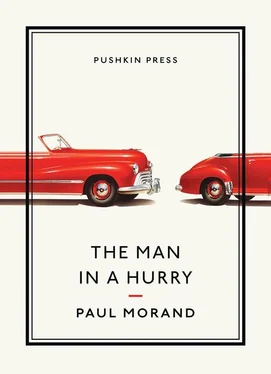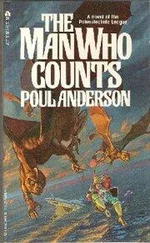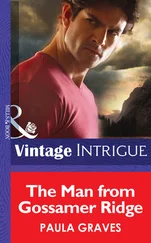Having become extremely frail himself, it was the outside world that now seemed to him antiquated and destructible.
“It’s unbelievable how everything has changed!”
And day by day, he grew increasingly weary of it.
He could feel the soothing sensation invade his being, which no longer struggled, even though his entire life, on the contrary, had been nothing but struggle and his powerful, essential warmth had come from the friction of his personality with the wind, with men, with everything that stood in his way. Today, even the memory of this heroic revolt against enemy forces had been obliterated. Vanquished, he let drop his weapons. It was a kind of joyous defeat that he fully supported. He possessed true despair, which is to say that total absence of hope that resignation and peace bring, not that violent regret, wrongly termed despair, in which a shadow of hope is concealed, just enough to prolong our resistance and our dreadful convulsions.
Ever since the day when, having passed a local ambulance with its flag, its bell and its frosted-glass windows, he had imagined himself falling down in the road, being picked up and dying on the spot, Pierre no longer went out.
“I must live a further fortnight,” he thought to himself.
The time required to see, to observe his child, to hand him the “baton” in that relay race in which father and son run against time.
Frightened of stairs, wary of steps, terrified even of pavements, he stayed at home without stirring so that he, too, could be sure of surviving. From his bed, he watched the purple showers, the iris-coloured clouds, the shafts of harsh light over Paris, and, in a direct line with the dome of the Invalides, the Eiffel Tower adorning the Montsouris park with a grid of iron mesh.
All his expectations were dead and buried and his frenzy had abated. His nights were spent reading. He rediscovered Bossuet: at the lycée , he had come to adore the great panoramas replete with the smell of incense and gunpowder, those broad glimpses of the lives of children of the nobility that “show all the extremes of human affairs”. Today, he preferred to pause over the less dazzling passages, on the muted pages in which Bossuet’s voice subsides after his outbursts: “The shepherd finds and captures his lost sheep…”
Leading an empty and limited life, only one view remained to him — the sky, the sky in which he discovered, reflected in vapours, all the earthly attractions of the world he was about to leave, flags, cathedrals, swollen snowscapes, islands in the ocean, continents that formed before one’s eyes and unravelled a moment later; all those shapes that one recognizes in passing here on earth and that quickly fade away, flooded him with their unreality.
What detachment! He remained lying on his back, like the sleeper in summer, never wearying of searching for excellence behind the fleeting clouds. One day he found it.
Then, prepared to be patient, he stood ready to wait for She who is always on time for her appointments.
A phone call from Amyot: Hedwige, transported to rue Mozart, had had a daughter.
Looking very pale, Pierre walked slowly, very slowly, down his staircase.
“It would be too bad,” he thought, “if I were to collapse down there, if the guard going off duty were not able to give the password to the guard coming on… I am going to see my daughter and it’s important that between here and Auteuil nothing should happen to me.”
He took his car, raised his foot from the clutch very gently, without letting his tyres, worn down from so much prior acceleration, skid. It was a time for saving money and looking after things. He was holding his steering wheel with an unsteady forefinger; anyone would have thought he was frightened of crashing on the way.
He arrived at last at the clinic. It struck him as remarkable that a man who was about to die should come and haunt the district of Paris in which most children are born.
He stopped at the porter’s office and had him make a phone call. He was asked to come up.
He crossed a garden area where nurses were taking the air and where convalescents were manoeuvring themselves about in their own wheelchairs (this method of crawling along made him shudder).
He walked along corridors where trays of stewed apple and biscuits, and bunches of roses removed from rooms overnight, were laid out on tables, among different-sized vases and burettes.
A lift, as vast as an operating theatre, let him out at the second floor. He noticed the baby-scales: it was the maternity floor.
In a moment, he was going to see a small bundle with clenched fists that would look like an elderly, red-faced grandfather, and which would be his daughter…
He reflected that this child would come out of the clinic in two weeks’ time, that she would take her proper place in the world, that he would not see her eyes gleam at the sights of all the jewels, just as Aladdin’s lamp gleamed at every wish, that he would not take her to the ball and that she would not be in love with him.
He sat down on a painted metal chair, waiting for the nurse who had gone for dinner to return. He could have entered without being announced, but between him and that door — which many men would have charged through with emotion and haste and with legitimate pride at seeing the gift of creation realized that makes an artist out of every father — between him and Hedwige there was a chasm that he could not bring himself to cross. He gazed at the door level-headedly, with the cool detachment of a yogi. With that cruel lack of curiosity that those who are about to leave this life show towards those who are staying there or entering it, he thought of Hedwige just behind that door, less than ten metres away from him, and he remained seated, not feeling the slightest surge of affection for her, without any emotion, without a trace of that abounding passion that had urged him to go and call on his wife. At Saint-Germain, at the Mas Vieux, she had been for him — the most frenzied, the most anxious of men — a symbol of peace of mind. Now he had found a more perfect peace of mind away from her and without her. Death is more soothing than the most sedative of partners.
Hedwige was no longer necessary to him.
*
Behind the door, a child’s cry. From the other side of life someone was calling.
Pierre could barely hear the call; he was like a dead man who, through his tombstone, deep in a forgotten cemetery, could hear the cock crow.
“My seed has germinated,” he said to himself, “and I am prolonging myself…”
For one last time he almost felt himself living as he did before, that is to say urging himself on, but it was more a vague memory than the reflex itself. He stood up and took a step on the polished linoleum. The newborn baby was still wailing. It was a very tiny human bleat.
“She already has her own song,” he thought.
He pressed his ear against the padded wax-cloth material. He could hardly hear the child any more. He was already on the dark bank of a river, and on the far side he imagined a tiny creature with a large head, with the body of a tadpole and bones that were still soft, who was waving at him, giving him a very vague wave that was neither a farewell nor a hello or a “come back”; just the sort of wave you might give if you were allowed only one, one simple wave of recognition, as if to say: “I’m here, I’ve arrived, you can go away and not worry.”
Pierre took no further step forward. He did not open the door. His hand lay motionless on the door handle. He listened again, but he could hear nothing apart from breathing as regular as the human tick-tock of the heart of this same child that he had once listened to through her mother’s body.
“I feel very calm,” he said. “Now there’s a little watch that Hedwige will not throw out of the window.”
Читать дальше












